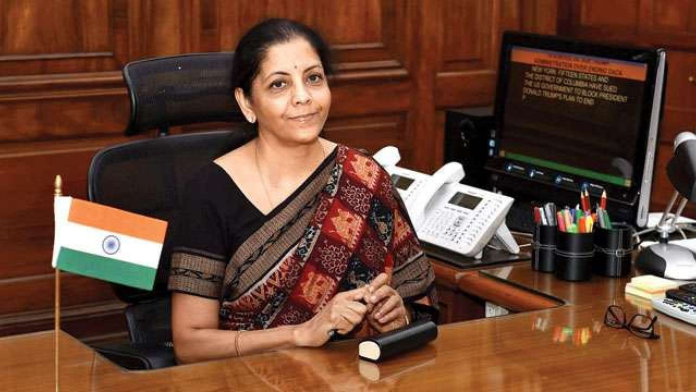Union Finance Minister Nirmala Sitharaman on Friday said that she is open to more tweaking inside and outside the Budget for economic growth based on the feedback given by economists and experts.
“If more has to be done beyond the Budget 2020, we are willing to do that. I am open to taking steps beyond it. We are open to hearing from all of you so that as and when tweakings have to happen or more has to be done beyond the Budget, we are willing to do that, the Finance Minister said in a panel discussion.
Participating in an interactive session on ‘Budget & Beyond’, organised by the NITI Aayog, the Finance Minister said that the immediate feedback to the Budget has been motivating, as it has had a “positive impact” on the currency, bond and equity markets.
“It is one Budget where the impact on equity, currency and bond market has been positive. Currency market remains stable, the bond market has cooled off and equity markets is positive,” Sitharaman said.
“If more has to be done beyond the Budget, we are willing to do that. If more has to be done beyond the Budget 2020, we are willing to do that,” the Finance Minister said at the session, where the participants made several suggestions to boost economic activity in the country.
On REITs and InvITs
On the REITs and InvITs, the Finance Minister said she wanted to hear the views of the economists and other tax experts on the Budget.
A key proposal was presented to her during the interaction related to a Budget proposal on dividend taxation and its impact on Real Estate Investment Trusts (REITs) and Infrastructure Investment Trusts (InvITs).
“If more has to be done beyond the Budget 2020, we are willing to do that,” Sitharaman said at the session, where the participants made several suggestions to boost economic activities in the country to tax dividends from REITs and InvITs at the hands of the unitholders. This move could affect the demand for REITs and InvITs in the country, say experts.
Given that InvIT is expected to help road sector attract patient capital (for say 20-30 years) to the Indian highway market, the fallout of budget proposal to abolish Dividend Distribution Tax (DDT) could result in taxing the dividend received by unitholders of InvIT formed via 100% SPV. In the earlier scheme of things, such dividends were not liable to DDT nor taxable either in the hands of REIT/InvIT or investors.
As per a report in The Hindu Business Line, Rajiv Memani, CEO, EY India made a suggestion to the Government restore the status quo in REITs and InvITs taxation regime. He pointed out that REITs and InvITs had gathered momentum in India and as much as $30-40 billion dollars could come to India over the next 12-18 months if the taxation regime on dividends is not changed. “We request you to restore status quo (dividend taxation) and this will help infrastructure development in a big way,” he said.
The Finance Minister was also provided clarity on whether the recent announcement around Sovereign Wealth Funds (SWFs) getting tax breaks for certain investments in the country would also cover pension funds. Allowing tax breaks for global pension funds would lead to India getting more long-term monies, he said.
During the budget speech, finance minister Nirmala Sitharaman announced the tax exemption for infrastructure investments in India.
“In order to incentivise the investment by the Sovereign Wealth Fund of foreign governments in the priority sectors, I propose to grant 100% tax exemption to their interest, dividend and capital gains income in respect of investment made in infrastructure and other notified sectors before 31st March 2024 and with a minimum lock-in period of 3 years.” the Finance Minister said.
Over the recent years, Sovereign Wealth Funds (SWFs) have shown an increasing appetite for infrastructure investments thanks to a combination of stable, predictable cash flows, superior returns to bonds, and low correlation with the market.
(With inputs from IANS)


